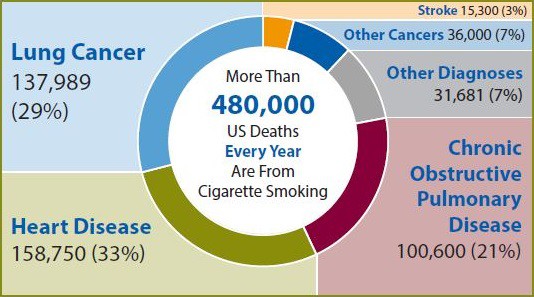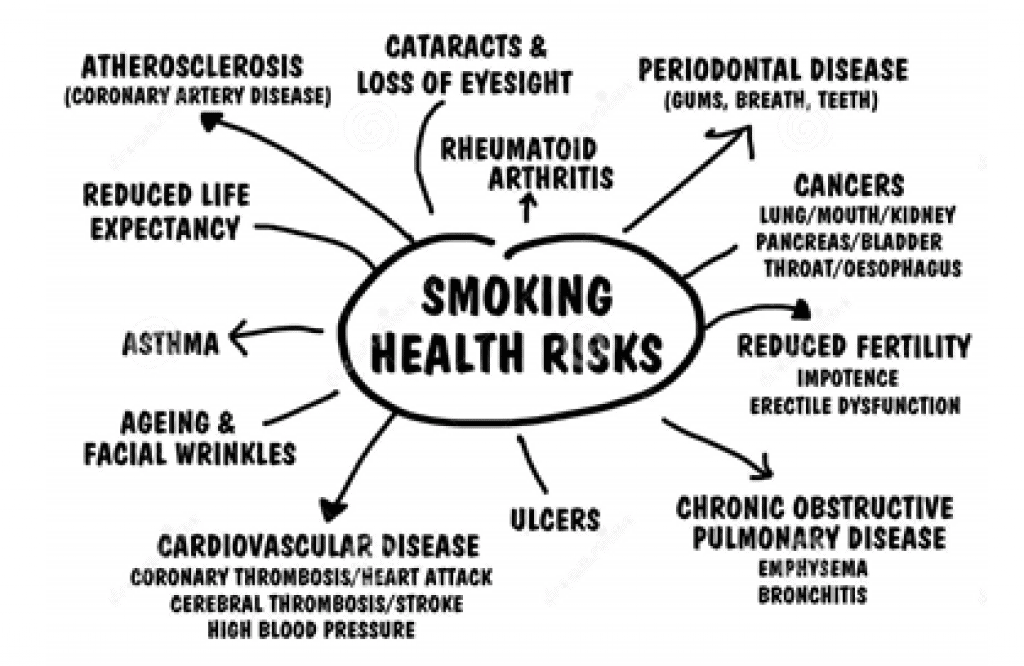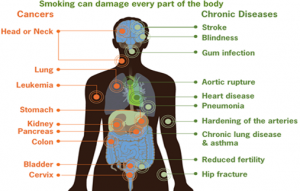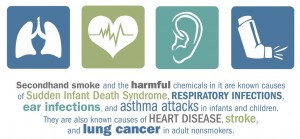Over recent years vaping has been embraced by millions of people worldwide.
Vaping’s myriad favorable qualities and benefits are cited by vape-loving individuals spanning the globe who ultimately comprise the phenomenon recognized by many as the “vape revolution.”
It is usually the critical and all-important objective of quitting cigarettes that present a pivotal and decisive moment for people to delve into the immense world of vaping.
If you’re dealing with the agonies associated with tobacco-related products, vaping opens up a world with a plenitude of benefits for former cigarette smokers.
According to an independent study by Public Health Engalnd, vaping offers a safer and healthier alternative to smoking and its abundance of perilous health risks.
Its status as an effective means of quitting cigarettes has prompted legions of people to not only explore the vaping culture but to also integrate themselves within it.
From countless health benefits to eye-opening cost-of-use savings, vapers reap a multitude of benefits compared to their cigarette-smoking counterparts.
Even though there have been several studies supporting vaping as a better alternative to smoking, we are still limited on what we know about the long-term effects, which forces us to question: is vaping really better than smoking?
Below we’ll look deeper into the cost and health aspects of smoking and vaping to determine whether it is better for us to be a smoker or a vaper…

Tobacco price hikes and tax increases are implemented by the federal government as a strategy aimed at effectively reducing smoking and tobacco use amongst kids.
The strategy has proven to work as every 10 percent increase in cigarette prices reduces youth smoking by about seven percent and total cigarette consumption by about four percent.
In addition to decreases in youth smoking and tobacco use, the US government has reaped the benefits of substantial revenue increases and the reduction of health care costs related to tobacco use.
Consequently, nearly all the states within the US have fast-tracked legislation designed at raising cigarette prices in addition to an increase in cigarette tax rates.
California is widely known throughout the United States for its progressively staunch anti-tobacco stance.
California activists cite the growing number of tobacco-related deaths within the state as evidence that the sale of cigarettes and tobacco products must be highly-regulated and aggressively taxed.

Source: CDC
Overwhelming public support for cigarette taxes is bolstered by the high number of tobacco-related deaths described in the California Department of Public Health study: “About 3.1 million people — or one out of nine California adults — smoke.
Every year, an estimated 34,000 Californians die from smoking.”
In response to the overwhelming public outcry from California’s statewide anti-tobacco coalition, many of the more populous cities have enacted aggressive price hikes and increased taxes for cigarettes.
San Jose, one of California’s major metropolitan cities just last month raised prices on individual packs of cigarettes by a hefty two dollars.
California is far from alone in its efforts to place high price tags on cigarettes.
New York City Mayor Bill De Blasio has recently announced a proposed plan to increase the “base price of a pack of cigarettes from $10.50 to $13.”
The staggering cost of cigarettes in New York City has prompted veritable brigades of NYC citizens to make excursions to neighbouring states in hopes of sourcing more affordable cigarette products.
Anti-tobacco activism is fierce in New York City.
The activism has not only resulted in exorbitant tobacco and cigarette prices but an attitude reflected by the government that tobacco damages the collective health of the community, that it is imperative to reduce smoking and tobacco use in order to save lives, and that “big tobacco is public enemy number one.”
While New York City’s high cigarette prices have driven many NYC citizens on out-of-state cigarette expeditions, their experience is not indicative of a collective mindset.
In contrast to the smokers crossing state lines to obtain affordable tobacco products, there are scores of smokers who have been inspired to quit by the recently soaring costs of cigarettes and tobacco-related products.
Significantly impacted by San Jose’s city-wide tobacco price increase, resident Dana Shaw stated that “the added cost might make her kick the habit. It sucks, they are already $5 to $6. They are $8.80 at my Safeway. Now they are going to cost up to $11. It’s a lot.”
With a fluctuating economy and rising unemployment, US citizens have found that smoking cigarettes are an endeavour that is proving to be far too costly for their sustained economic viability.
The introspection brought about by the looming uncertainty of cigarette prices highlights the massively unaffordable nature of cigarettes and has inspired multitudes of smokers like Richard Rosas to make the ultimate decision to quit.
With an average price per pack of $7.00 and prices by states across the US ranging anywhere from $5.00 to $13.00, the cumulative price of smoking costs a person $1825 to $4745 for smokers who go through one pack of cigarettes per day.
It’s not as easy for everyone to give up smoking simply because it’s become a more expensive habit. If it was that simple, most of us would have quit a long time ago, I’m sure.
Fortunately, there are cheaper alternatives to smoking now, such as NRT’s and electronic cigarettes.

When the cost of vaping is compared to smoking, it becomes more evident as to why vaping is growing in popularity as it can work out to be a much less expensive habit.
Studies have shown vaping to be around 40% cheaper than smoking.
So let’s say you’re paying the average price of $7.00 in the US and you smoke a pack a day, you’d end up spending $7.00 per pack x 365 days = $2,555.
40% of $2555 is $1,022, so based on this study you’d be saving over $1,000 a year if you switched to vaping. Not bad at all.
But it’s not just the money saving that’s incentivizing people to quit smoking. There are health implications too.
The unavoidable health risks of cigarettes along with their hazardous chemicals and ingredients have become enough of a concern for many smokers, which we’ll be discussing next…
HEALTH RISKS

MAO inhibitors found in cigarette smoke are merely only one aspect of the multitude of harmful and hazardous elements found within cigarettes.
Incredibly, there are more than 7,000 chemicals found in tobacco smoke, at least 250 of which are known to be harmful, including hydrogen cyanide, carbon monoxide, and ammonia.
Among the 250 known harmful chemicals found in tobacco smoke, at least 69 of them are known to cause cancer.
These cancer-causing chemicals include some of the following:
- Acetaldehyde
- Aromatic amines
- Arsenic
- Benzene
- Benzo[α]pyrene
- Beryllium (a toxic metal)
- 1,3–Butadiene (a hazardous gas)
- Cadmium (a toxic chemical)
- Chromium (a metallic element)
- Cumene
- Ethylene oxide
- Formaldehyde
- Nickel (a metallic element)
- Polonium-210 (a radioactive chemical element)
- Polycyclic aromatic hydrocarbons (PAHs)
- Tobacco-specific nitrosamines
- Vinyl chloride
In addition to the abundant hazardous materials listed above, additional harmful chemicals include lead and acrolein, and apparent in burning cigarettes are noxious gases such as carbon monoxide and hydrogen cyanide.
Another ingredient found in cigarettes that pose significant harmful effects is tar.
When your lungs absorb tar, it can kill your lung cells, which will destroy the cilia in your lungs.
Damaged cilia enable tar to penetrate lungs even further, thus causing more opportunity for damage.
As a result, tar is the primary cause behind throat and lung cancers.
The combination of tar and the various 7,000 other chemicals pose an immense threat to our health and vitality.
Common health problems experienced by smokers include things like coughing, shortness of breath, and chest tightness, to name a few.
We’ve compiled a list of just a few of the many problems, conditions, and diseases that many smokers suffer from:
- Emphysema
- Cancers of the lung, larynx, cervix, mouth, colon, and rectum, oesophagus, kidney, throat, liver, bladder, stomach, pancreas
- Acute myeloid leukaemia
- Heart disease
- Stroke
- Aortic aneurysm
- Chronic obstructive pulmonary disease – COPD
- Chronic bronchitis
- Higher risk of contracting pneumonia
- Higher risk of contracting tuberculosis
- Internal inflammation
- Impaired immune function
- Fertility problems
- Increased chance of miscarriage
- Risk of ectopic pregnancy
- Risk of babies born prematurely with abnormal birth weights
- Risk of babies born with cleft lip or cleft palate
- Increased risk of death of infant from Sudden Infant Death Syndrome (SIDS)
- Increased risk of erectile dysfunction
- Increased risk of premature death
- Increased risk of stroke

Critically, second-hand smoke results in many of the same health risks that come from being a cigarette smoker.
Consistent exposure to second-hand smoke in adults can result in serious respiratory and cardiovascular diseases, stroke, heart disease, and lung cancer.
There is also a highly increased risk of ear infections, bronchitis, pneumonia, and colds for children.

Second-hand smoke can even cause premature death.
Tragically, over 600,000 deaths per year are premature and are attributed to second-hand smoke inhalation.
E-cigarettes stand in stark contrast to their traditional counterparts.
In the United Kingdom, the National Centre for Smoking Cessation and Training supports the use of e-cigarettes and encourages smokers to explore e-cig and vape options if they feel it will help them quit smoking cigarettes.
It is generally understood and widely accepted that vaping presents significantly fewer health risks and effects on mood than traditional cigarettes.
While e-cigs aren’t entirely risk-free, the vastly reduced number of hazardous chemicals found in comparison to burning tobacco smoke is significant.
Investigations into the effects of e-cigs on heart arteries yielded results showing that cigarette smoke demonstrated a “clear stress response” on the human coronary artery endothelial cells, while e-cigarette vapor did not.
The clear implication from this investigation is highly suggestive of the fact that smokers can significantly and immediately reduce the harmful and hazardous effects of tobacco use by switching to vaping.
A more obvious benefit that is readily apparent is the fact that e-cigarettes do not produce tar or toxic gas, both of which are major health hazards for cigarette smokers.
The harm reduction offered from replacing traditional cigarettes with e-cigarettes is immense.
Health New Zealand (HNZ) recognises the practicality and efficacious aspects of vaping and highly recommends using e-cigarettes as a means to quit smoking, based on their opinion that vaping pose significantly less risk than traditional cigarettes.
HNZ supports a harm-reduction approach to quitting smoking, championing strategies that prove to be practical, sustainable, and effective for smokers looking to achieve tobacco cessation.
This concept is espoused by Cahn and Siegel who, through their work in public policy, state that “electronic cigarettes show tremendous promise in the fight against tobacco-related morbidity and mortality.”
With the mindset that e-cigarettes offer a viable harm-reduction strategy, Cahn and Siegel argue that e-cigarettes pose significantly fewer health risks than conventional tobacco cigarettes.
Their argument is also supported by the Royal College of Physicians in the United Kingdom, who state that vaping 95% less harmful than tobacco.

Vaping has inspired a social revolution that has a far-reaching influence that reaches every corner of the globe.
The vape culture and its associated industry are highly relevant entities that are no longer relegated to an underground status.
Vaping, has in effect, gone mainstream.
Vaping has the power to turn formerly obsessed and addicted cigarette smokers and into e-cigarette converts.
In that process, the mental and physical health of former smokers begins to immediately improve while the health of friends and family are also spared from the harmful effects of second-hand smoke and carcinogens from burning tobacco cigarettes.
It is collectively understood that the abstinence approach to addiction is fraught with difficulty and high failure rates.
Vaping is heralded by health professionals worldwide as an all-important public health tooth that ought to be comprehensively and systematically promoted as a viable option to quit smoking.
This attitude is reflected in the stance taken by the American Heart Association; in their AHA Policy Statement on electronic cigarettes, the AHA maintains that vaping is safer than smoking, and a study by researchers from University College London and funded by Cancer Research UK shows that vape technology “…is linked to an increase in successful quit attempts….”
In response to the massive decrease in cigarette smokers, Ruth Harrell, Plymouth City Council’s director of public health in the UK, said: “Vaping with an e-cigarette is a much safer alternative to smoking, and we know that many people in Plymouth are using them to help them to stop smoking altogether.”
Vaping is unquestionably better than smoking. It’s one of the most important public health tools available to help reduce harm and improve the well-being of the world.
What are your thoughts on this? Do you think vaping is better than smoking?

